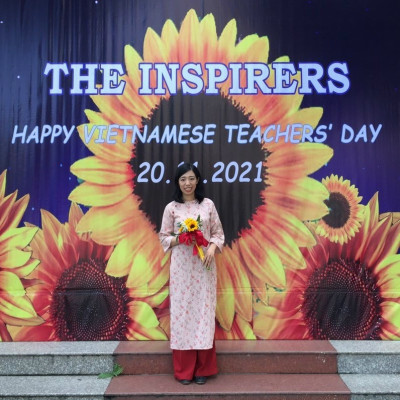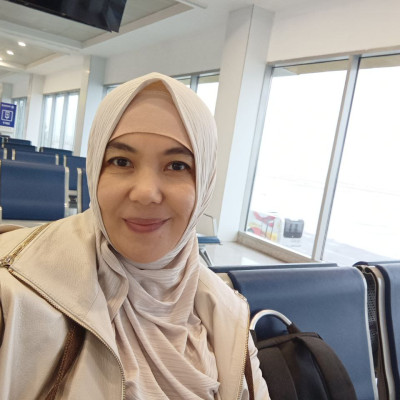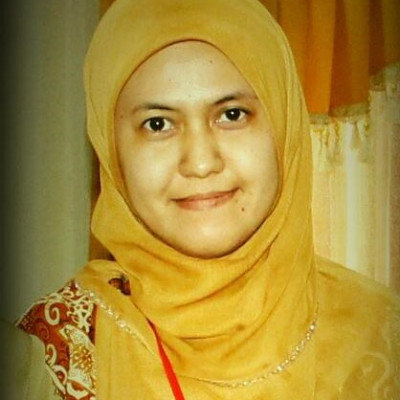Sessions / School
Teachers trainees' opinions about ER #3813
The participants in this study were fourth-year undergraduate students enrolled in the Teacher Education Program at a private university in Japan. For their seminar work, the students read articles describing the benefits of extensive reading (ER), the process of implementing an ER program and relevant research studies. After six weeks of lessons, the teacher trainees participated in an ER lesson as students. Data was collected through the use of a questionnaire containing open-ended questions. Each question represented a research question for this study. The questions elicited the teacher trainees’ opinions about: ER’s viability within the Japanese context and for low-level learners; perceived weaknesses and strengths of ER; possible approaches for incorporating ER into English classes; ER and student motivation; and whether they plan to use ER in the future. The results indicated the trainees had a positive view of ER, but they were mostly concerned with ER’s viability for low level learners.
ER practice in the public school #3736
All English teachers believe extensive reading can be very helpful for students. The big question is when and how. Ms. Wu, a public English teacher from Wuhan, China, who was inspired by presentations during ERWC5, started her practice with her G7 students in 2019. Despite big challenges including misunderstandings from the parents, lack of reading hours, no books, and no immediate effect, they kept practicing ER in the classroom during the 3-year pandemic period. In 2022, these students graduated with very positive test scores and most importantly, many students have formed a daily reading habit. The presentation will reveal the secret behind the story.
West Sumba students’ reading motivation, difficulties and strategies #3858
In order to enrich students’ knowledge and collect important information, students need to have good reading skills. Good reading skills can be built and sharpened by having good reading motivation. Good reading motivation can be initiated by engaging students with reading materials. Motivation in reading can affect students’ reading comprehension, and without motivation, students may have poor reading comprehension. However, it is inevitable that students may face difficulties in their reading which may decrease their reading motivation. In rural areas in Indonesia, there are several obstacles which may affect students’ reading motivation such as lack of learning resources, inadequate facilities, language barriers, and unsupportive parents. Therefore, to maintain their motivation, students need to equip themselves with appropriate reading strategies. The objective of this study is to investigate the English reading motivation, difficulties, and strategies of West Sumba senior high school students. This study uses a descriptive quantitative approach with a survey. The items in the surveys were used to collect data regarding the students’ English reading motivation, difficulties, and strategies. The results of this study indicated varying levels of reading motivation for four different motivational variables, namely self-efficacy, intrinsic, extrinsic, and social issues. Common difficulties faced by students in their reading activities are their interest in watching television or playing with their gadgets rather than reading, problems with their parents, and lack of English reading sources. The strategies that students did to overcome these difficulties were limiting their screen time and asking their teacher to provide more time for them to read English materials in class.
Cancelled The existence of library as ER media in schools of East Java #3804
School libraries as media for information literacy should provide much information in printed or digital books and accommodate students with many resources such as media for extensive reading. The study aims to demonstrate reading facilities in school libraries in East Java. The presenter conducted a survey using Likert sty;e questionnaire regarding the facilities and book collections for ER among libraries and analyzed the existence of libraries as media for ER. Of the 199 respondents, the results showed that students expected more collections of books as references to help them find more information as literacy sources and ER media. Students in schools in East Java like to do ER not only for gaining knowledge but also for pleasure reading.
How a class library optimizes the regular class in a junior high school #3809
This presentation focuses on how a mini class library with about one thousand books was set up and managed. Additionally, the benefits for classroom activities and homework will be discussed. Around thirty five students from grade 7 read extensively for two years and improvements on student motivation, stamina, and grades were recorded through interviesw, surveys, reading logs , school work, and test papers. The audience will learn how to develop student interest and efficiency in learning English through wide reading in a public junior high school in Shanghai, China.
Cancelled Story telling sessions in the post pandemic education system #3794
The COVID-19 pandemic has caused a significant disruption in the education system worldwide, resulting in the closure of schools and the implementation of remote learning. This study aims to examine the effectiveness of storytelling sessions in the post-pandemic education system in a school in the Philippines. The study was conducted in a sample of grade school students from different backgrounds who participated in storytelling sessions conducted by their teachers and invited story tellers. The study employed a mixed-methods approach, including pre- and post-session surveys, observations, and interviews with the participating students and their teachers. The findings suggest that storytelling sessions have a positive impact on student engagement, motivation, and learning outcomes. Students reported that the sessions helped them to understand complex concepts, develop their creativity, and improve their language skills. Teachers reported that the sessions were effective in enhancing student participation and fostering a positive learning environment. The study concludes that storytelling sessions have great potential to enhance the learning experience in the post-pandemic education system and can be used as a valuable tool to support students' academic and personal development.
Extending extensive reading panel: Perspectives from Singapore #3828
Research has demonstrated the importance of extensive reading for supporting students’ development as proficient and engaged readers. Among the ten principles listed by Day & Bamford (2002), the presence of interesting texts, the importance of choice, reading for pleasure and reading as much as possible are key elements to encourage students’ independent reading. Given worldwide concern about students’ seeming decline in reading, it is important to consider ways to revitalise practices of extensive reading in schools for both children and adolescents. This panel proposes to extend ways to encourage extensive reading through the use of children’s literature, book clubs, e-resources, and school libraries. In this panel, the presenters will share about how to motivate students’ extensive reading through (1) selective curation of quality children’s literature, (2) conducting online book clubs, and (3) stocking the school library with quality resources for adolescent readers.
Implementing ER program in the curriculum for younger learners #3822
It is generally acknowledged that extensive reading contributes more to the acquisition of language competence than classroom learning, especially for younger learners aged from 3 to 16. Most language schools which are still struggling through only classroom learning turned out to be unavailing. Thus the presenter started their trials of integrating ER program with IR course and helped the students to achieve more. In this presentation, the presenter would like to share their experience of how they integrated ER to the curriculum, including how to do the diagnostic tests and periodical assessments for the students; how to choose the proper ELL or ESL readers for them accordingly; how to setup the targeted skills and strategies for both IR & ER course; how to guide the in-classroom ER course and lead the at-home ER practices, and how students benefit from Extensive Reading.
Utilizing Let’s Read Asia website to boost students’ literacy development #3777
This study investigates the impact of Let's Read Asia, a website offering more than 9,000 graded readers, on the literacy development of Indonesian students. The research question is "To what extent can Let's Read Asia website boost the students' literacy development?" As part of a Jesuit institution committed to providing quality education, the researchers align their efforts with Universal Apostolic Preferences (UAP), especially "journeying with youth," by promoting literacy and supporting young people in shaping a brighter future. The study implements Classroom Action Research (CAR) with two cycles and applies the Extensive Reading concept, measuring participants' motivation, enjoyment, and changes in attitude after using Let's Read Asia. The study was conducted through the distribution of questionnaires and face-to-face interviews with selected participants, revealing a positive impact on the literacy development of students. The interviewees were selected as sample participants who have experienced specific literacy challenges or interventions.
ER collaboration with the school library at high school #3714
This presentation explains a case of an extensive reading (ER) program in a private junior high and high school in Tokyo. The program is a collaboration between the English department and the school library. English teachers already have too much to do that it is a challenge to add ER to the regular curriculum despite the desire to start a program. We will show how the collaboration can overcome the many obstacles in starting ER, such as about the basic collection of materials, a smart way to shelve the books, and the method to keep the circulation moving. We will explain the practice in detail so that teachers willing to start a program at their school will know what to do in the first lesson.
Extensive reading among teachers of English at secondary schools #3684
Extensive reading (ER) has become a vital part in the development of teaching methodologies as well as the learning process. A variety of studies have proven the benefits of ER but the questions remain as to whether secondary English teachers can work as ER models and how successfully they can implement ER in their classes. This paper aims to uncover the voices of secondary English teachers’ about extensive reading. The participants consisted of 28 secondary English teachers from different schools in Vietnam. The data were collected from an online survey questionnaire and interviews. The results show that secondary English teachers are aware of the significance of ER but they face certain difficulties implementing extensive reading for themselves and for their students. The findings conclude with discussion and pedagogical implications for teaching and learning to read in English.
Cancelled Visual Health and Reading #3704
The impact of visual health on reading is not clear in practice neither in the literature. While educational Neuropsychology aims to optimize reading efficiency by improving sensory (visual, auditory, etc.) and motor development and care, essentiel medical care like vision, has been neglected, especially in Low-Middle-Income-Countries, affecting reading performance. Furthermore, some professionals-researchers seem to have mistaken regular reading processes with dyslexia brain processes. The aim of this presentation is to sensibilize education administrators, pedagogic-psychological teams and policy makers about the brain-body reading processes, and to assess on the association between visual health and reading. This proposal may have implications for future polices on bridging gaps between education, health, and child development.
School libraries collaborating with English teachers #3761
This study is based on the practice of an Extensive Reading(ER) program in a Japanese high school library in collaboration with the English teachers and the librarian. A collection of Graded Readers(GR) in the sub 700 headwords range and authentic children's books can support high school students in overcoming their anxiety towards studying and become more motivated to read in English. This research confirmed that 5 cohort, 1,268 beginner high school students could attain upper intermediate level while reading English books at the comprehensible vocabulary level. The research revealed that it is crucial to place English books in school libraries for ER programs. The library is responsibile for the registration and management of the library collection which reduces the burden on English teachers and at the same time supports the spontaneous and continuous learning for high school students.
Cancelled Applying English poetry to improve extensive reading #3782
Poetry plays an important role in achieving the objectives of extensive reading teaching. However, English poetry teaching is less satisfactory in extensive reading teaching due to learners’ attitudes, traditional teaching methods, and so on. Thus, the author studied the benefits of using English poetry to extensive reading teaching from two aspects: the characteristics of English poetry and the functions of English poetry in extensive reading teaching. The data is collected by a pre- test, post- test and survey methods. The author findings show that a total of 21 of the 30 participants ( 70%) gave survey with positive result. In the end, this researcher put forward some suggestions for how the teacher appropriately makes use of English poetry in extensive reading teaching. Keywords: poetry, extensive reading , characteristics of English poetry, benefits
Raising self-awareness of girls through extensive reading materials #3683
Due to increasing number of sexual abuses and discrimination gender education is turning to critical issue in the Uzbekistani context [1]. However, it is not covered by school curriculums. And, the reasons vary. Some families misunderstand the term while educational authorities claim that “gender education should be included into education system starting from preschool ages…”[2]. Here, ER materials can stand as abuse prevention program to teach young girls on recognizing, avoiding, and reacting on any type of abuse. This study was conducted to evaluate the impact and highlight the role of ER in schoolgirls social-emotional learning (SEL). The presentation will outline the research findings based on pre- and post-intervention surveys and interviews administered to 20 primary schoolgirls. The findings indicate the ER intervention raised girls’ self-awareness and decision-making skills. The audience will learn the research findings and be equipped with strategies for implementing SEL-focused tasks into ER programs at schools.
Literature circle: a strategy in learning extensive reading #3728
Reading is one of vital skills that most students lack attention and interest and in teaching this skill teachers face challenges. However, due to the demand of curriculum this skill should be taught in all school levels. In EFL class, reading is not only taught intensively but also extensively. In extensive reading, teachers can employ certain strategies, e.g. literature circles. A literature circle is a group of reading comprising 4 to 5 students who have small group discussion and the members have to focus on their jobs or roles while reading. The use of literature circle can provide a unique value in engaging students in extensive reading. This writing aims to describe how students responded to the literature circles employed in extensive reading activites. From the reflection, the results showed that 80% of students responded positively to the literature circles activities, while the other 20% claimed they had some confusions.
Keywords: Extensive reading, EFL, literature circles, students’ responses
Developing summarizing skills using extensive reading #3707
The concept of Extensive Reading (ER) in the ESL context of Bengal (India) was propounded by West (1920), who concluded that when students read texts they found interesting, their improvement in the target language was immense. Therefore, the present study investigates the implications of ER in English for developing summarizing skills of 45, class 9 students in a girls-only vernacular medium school. Data was collected using questionnaires, one round of focus group interviews and results of the pre-and post-test that were administered before and after the month-long intervention programme on ER. An analysis of the data shows that using ER helped to improve certain elements of writing that are considered necessary for good summarizing skills. The availability of more time could help to bring about greater changes in the reading-writing process. The study has implications for using Classroom ER (Waring, 2012) in EFL and ESL contexts.
Cancelled Extensive reading activity motivating a whole class in Mongolia #3855
This presentation reports about improving reading comprehension through extensive reading activity. The action research on an extensive reading activity after a whole-class reading tells us the activities are in great need among the secondary school English learners. The whole–class extensive reading activity was conducted in 11 provinces in 8 districts with 62 teachers for 1504 secondary school students in Mongolia. The result of the action research showed; I) using extensive reading activity improved the learning process of English, II) the students expressed good responses about the extensive reading activity which was whole class reading, III) organizing a whole class reading activity improved class unity and overall responsibilities on behalf of class name or school names. In short, before the whole class extensive reading activity, the students focused on their own results and individual academic progress but after a month of the whole class extensive reading activity, the students expressed they had a better class atmosphere and all tried for one goal. Then they highlighted that they are ready to conduct the next extensive reading activity for improving their English in all four skills through reading.
Cancelled Socioeconomically disadvantaged student reading engagement and performance #3859
Disadvantaged students are socioeconomically inferior, and their English academic achievements tend to lag behind, which is not conducive to their comprehensive and long-term development. It is necessary to find the influencing factors of these students’ English learning and implement intervention. A total of 4082 Grade 8 disadvantaged students in a southern city in China enrolled in this study, and an analysis was conducted about how their English reading engagement predicted their reading performance and reading resilience. It was revealed that disadvantaged students’ English reading performance is significantly lower than that of non-disadvantaged students, and their reading engagement is significantly less too. Their pleasure reading time, reading attitude and metacognitive strategies can significantly predict the reading performance and English reading resilience. Theoretically, this study supports the three-element model of reading engagement. Practically, this study has significance for disadvantaged students’ English teaching and intervention, and may contribute to equity in English education for junior high students.
How readers can be Assisted: Quiz taking or discussion #3772
This study demonstrates learners’ learning paths in their extensive reading (ER) progress using two types of scaffolding for comprehension monitoring: quiz taking and discussion. Although the importance of socially constructed meaning is emphasized in critical literature (Gee, 2003), such a reading comprehension perspective has been investigated less in L2 ER literature. To promote outside-of-class ER using online materials in the Japanese high school context, the effects of two different types of self-selected scaffolding regarding spontaneous reading were examined, i.e., online comprehension quizzes and a cyber classroom where learners discuss books they had read. The results of the mixed methods —semi-structured survey and target students’ interviews —revealed that the quizzes could give learners with less confidence in L2 an explicit scale of their cognitive competence; however, the collaborative practice was more promising for establishing their reading habits and enhancing self-efficacy as they realized their identities as community members.
Cancelled Developing digital library “Komulit” application using Kodular #3843
In the current age of massive digital development, we have to face the fact that our students are more engaged with their smartphones than books. However, some schools have no facilities to provide digital reading sources while they also lack paper book collections. This makes students feel less motivated to visit the library and read. The aim of this study was to develop a library application to provide students with various reading resources and enrich the school library’s book collection. This study employed analyze, design, develop, implement, and evaluate (ADDIE) methods. It involved 12 schools and 40 junior high school students, and a needs analysis was conducted using a questionnaire. For the design and development phase it used an online platform called Kodular to create the digital library. The result of this study was to produce an android application called Digilib Komulit that can unite and access various reading source websites through one application. Moreover, the participants feel more engaged in reading using digital library application rather than printed books.
From reading books to building vocabulary banks on specific topics #3841
This paper aims at (1) introducing part of a reading project carried out at a high school in Vietnam and (2) investigating students’ interest in reading during the project. The project is supposed to cover 4 topics, and each topic takes 6 weeks to be explored. This paper focuses on the topic of Lunar New Year (the biggest traditional festival in Vietnam). 45 students of grade 11 participated in the project from January to mid-February 2023. They were divided into five groups. Each group was given a collection of literary works and they themselves chose three articles about Lunar New Year to read, then picked up words/ phrases relating to the topic to build a vocabulary bank and made a short video clip to present the topic. Data collected from the survey and interviews with students showed that they really developed their interest in reading during the project.
Student perceptions of an after-school extensive reading program #3763
Extensive reading (ER) plays an important role in Indonesian high schools as it supports the National School Literacy Movement and improves students' English skills. However, ER-based activities during school hours mostly rely on the 15-minute silent reading at the beginning of the day. This study describes a piece of research carried out in seven high schools in Java and Bali into students’ perceptions of after-school ER programs. Arranged by ER enthusiasts in the Indonesian Extensive Reading Association (IERA), this program explores fifty-eight students’ perceptions of the reading materials and the follow-up activities through an online questionnaire. The findings of the survey found that composing acrostic poems based on the book they read was the most interesting among other ER-based follow-up activities. Another finding revealed that the students expressed a more positive attitude towards ER which is enjoyable, inspiring, and entertaining. Pedagogical implications will also be discussed.





























